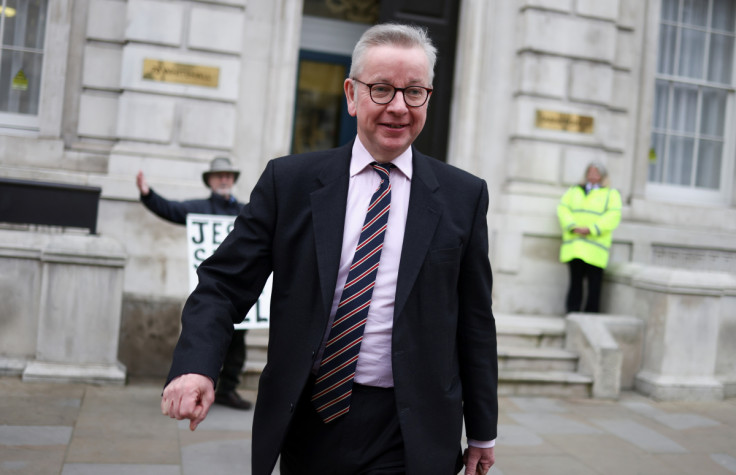Gove launches independent review into civil unrest in Leicester last year
A panel of independent experts is due to be appointed to get to the bottom of the civil unrest that occured in Leicester last September.

The largest settlement in the East Midlands, the city of Leicester has a population of 368,600. A diverse city, Leicester has been home to large numbers of migrants and refugees, with more than 240 different faith groups spanning 14 religions according to the Runnymede Trust.
With Net migration reaching 606,000, Britain constitutes a desirable location for those looking to relocate across borders.
In recent times, the domestic political focus has been on the economy and the cost of living crisis. However, Britain's political challenges are cultural as well as economic.
One challenge potentially faced by any multicultural community is the preservation of tolerance and goodwill between different religious, ethnic, and cultural groups that live alongside each other with different identities and ways of life.
Back in September 2022, civil unrest occurred on the streets of Leicester, with assaults, vandalism, stabbings, and attacks on properties including places of worship bringing chaos to the city. In the words of the Department for Levelling Up, Housing and Communities, in some incidents, the civil unrest that took place reflects "divisions between different groups across the city and beyond."
More specifically, the civil unrest is related to community tensions between Muslim and Hindu groups. According to a report by Charlotte Littlewood of the Henry Jackson Society, a think tank that seeks to advance democracy and human rights, Leicester saw both Hindu and Muslim marches on the weekend of the 17th of September, 2022.
The report highlights how chants of "Jai Shri Ram" and "Allah u Akhbar" were made, with both Hindu and Muslim protestors wearing balaclavas. Furthermore, arrests were made for the possession of weapons amongst both Hindu and Muslim protestors.
In response, Michael Gove, Secretary of State for Communities, has commissioned an independent review to investigate the civil unrest that occurred. Gove has explained how last year's civil unrest is "all the more shocking and upsetting," given Leicester's "proud history of community cohesion."
Lord Austin, former Minister for Housing and Planning and former Minister for the West Midlands, has been appointed as chair of the review. An independent panel of experts will be appointed to investigate the origins and causes of the civil unrest. They will seek to understand how future incidents of civil unrest can be prevented.
Lord Austin highlighted how "cities such as Leicester have proud histories of tolerance and diversity," and that a core part of the British national identity is the tolerance of others from different backgrounds with different beliefs.
The announcement of an independent review was also welcomed by Sir Peter Soulsby, Leicester City Mayor. He articulated his desire for "Leicester and other cities to be able to learn from its findings" so that the cohesion of communities is not put at risk again.
Existing Research
However, research has already been undertaken to gauge the cause of the civil unrest that took place. This article has previously mentioned the report written by Charlotte Littlewood of the Henry Jackson Society.
Furthermore, the Centre for Democracy, Pluralism and Human Rights (CDPHR) has already presented parliament with a report entitled "Fact-finding report on Leicester Violence 2022 – The rise of territorial majoritarianism and Hinduphobia." The CDPHR conducted research to identify the facts and determine the causes of the unrest.
In terms of causes, the Henry Jackson Society report refers to territorial and "community cohesion" problems between the "Hindu Diu Daman community in Leicester and their Muslim neighbours." The Hindu Diu Daman community are a "relatively recent immigrant" community in Leicester.
More specifically, tension was reportedly caused by Diu Daman immigrants holding festivals that involved the consumption of alcohol which existing residents found to be disruptive.
According to the Henry Jackson Society report, "unverified reports" exist of mutual assault between Muslim and Hindu youth that occurred from the 22nd of May through to the 20th of September.
It refers to the mutual "prejudicial" views held between "Muslim and Hindu youth." Crucially, this issue was "falsely presented" to be one of "organised Hindutva extremism and terrorism." Whilst these incidents reflect negative views about Hindus and Muslims, the report states that it is "unclear whether there are nationalist elements." Furthermore, there is no evidence which points to the "organised Hindu extremist or terrorist groups" being involved.
The report explains how parts of the Hindu community and several Hindu temples were accused of "a misinformation campaign" of links to the RSS, a political organisation based in India. The Rashtriya Swayamsevak Sangh (RSS) is a "Hindu nationalist volunteer group" associated with the idea of Hindutva, a form of cultural nationalism. Moreover, the perception of a link to the RSS has created hostility towards Hindus.
The CDPHR report explains that while East Leicester constitutes an "ethnic enclave" of the Muslim community, it is also home to a minority Hindu community. The consequence of this is the observation of "territorial tensions and localised majoritarianism."
It refers to the use of "malicious propaganda" intended to "defame and vilify the Hindu community as Hindutva nationalists and extremists."
Furthermore, intentions were not limited to Leicester, with efforts made to "target and vilify" the wider Hindu population across Britain.
The objective of "nationwide mobilisation" targeted at the Hindu community was pursued through the use of "extrapolated versions of the misinformation about the Hindu community in Leicester." Luckily, these attempts failed with the exception of Birmingham, where civil unrest extended to a Hindu Temple.
© Copyright IBTimes 2025. All rights reserved.




















